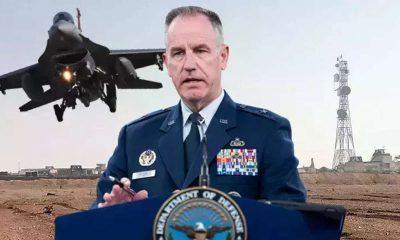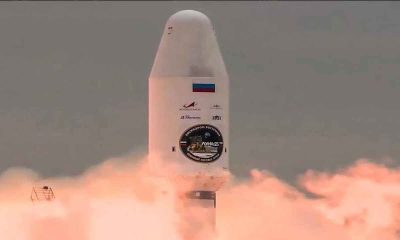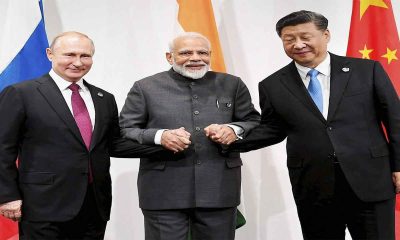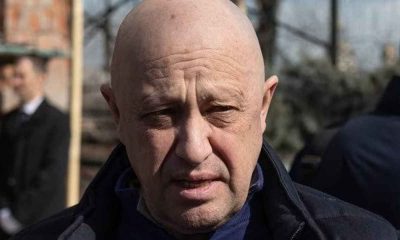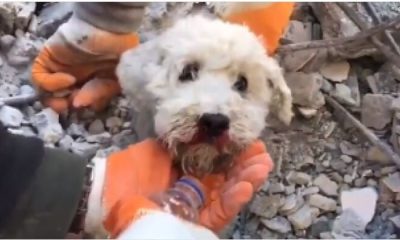Latest world news
UN Chief asks Security Council to end Syrians’ sufferings
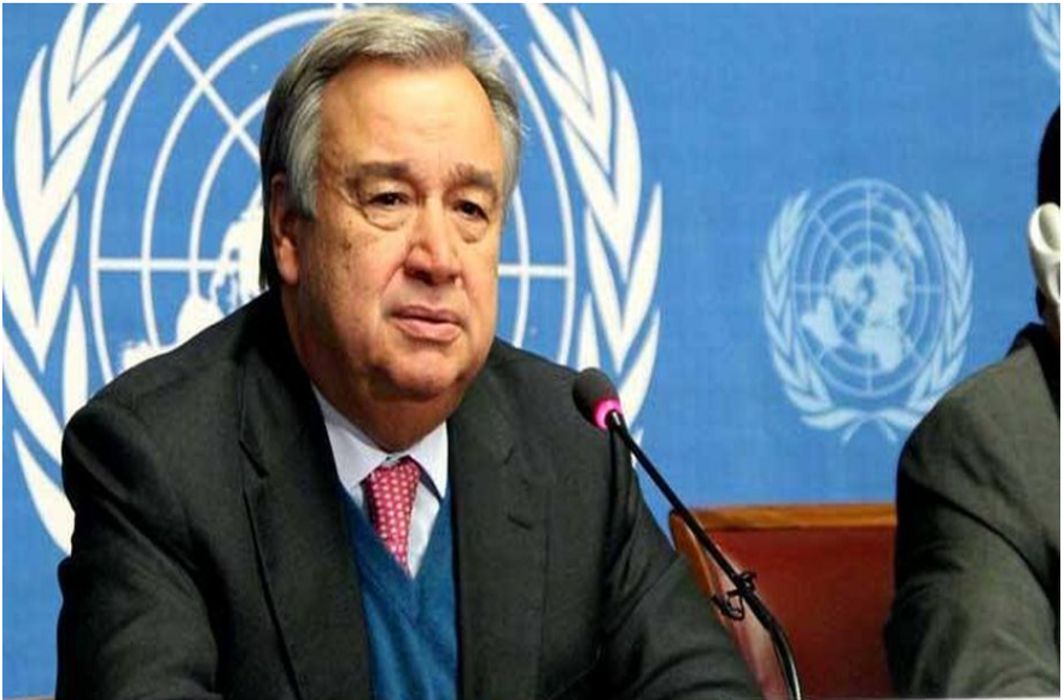
Syria claims of alleviating civilians’ through humanitarian corridors
The UN secretary-general has urged Security Council members to “end the suffering” of residents in besieged Eastern Ghouta, on Monday, while US has threatened to “act if we must” as a ceasefire continues to be ignored by Syrian and Russian forces.
According to Aljazeera, Antonio Guterres’ remarks came as the government forces continued its operations for a third week to launch air strikes and advance a ground offensive into the Damascus suburb. Damascus has claimed success of security some areas and bifurcated the Eastern Ghouta into three divisions: Douma and its surroundings; Harasta in the west; and the rest of the towns further south. The enclave has been under rebel control since mid-2013.
The UN Secretary General was quoted saying, “I am deeply disappointed by all those … who allowed this to happen,” at the UN headquarters in New York.
“There should be only one agenda for all of us: to end the suffering of the Syrian people and find a political solution to the conflict. Particularly in Eastern Ghouta, the air strikes, shelling, ground offensive intensified after the adoption of the resolution.” The UNSC passed resolution 2401, on February 24 asking all parties to halt confrontation for 30-days.
Read More:- Iran to continue support to people in Syria and Yemen
According to Syrian official news agency SANA report from New York, that while participating in the UNSC meeting, Syria’s ambassador to UN, Bashar al-Jaafari, said that his country has taken many measures to alleviate the suffering of civilians in al-Ghouta, including the opening of two humanitarian corridors to ensure their safe exit.
Read More:- Syria: Rescue leaflets for civilians, militants thrown in Eastern Ghouta
He added that after the adoption of the UNSC resolution 2401, a full and daily cessation of combat activities has come into effect from 9:00 am till 2:00 pm with the aim to deliver humanitarian aid and secure a safe and unhindered evacuation of civilians in areas held by terrorist groups through two hmanitarian corridors, in addition to the entry of two convoys of aid from the UN, the International Committee for Red Cross (ICRC) and the Syrian Arab Red Crescent (SARC) to the Eastern Ghouta area on the 5th and the 9th of March.
Read More:- Syria: Terrorists retreat, citizens flee from Eastern Ghouta
Moreover, Syrian representative at the world body has also alleged that those measures have been impeded by terrorist groups and their operators, some of them members at the Security Council. He also said the terrorist groups have targeted civilians in Damascus with more than 2499 mortar and rocket shells causing the martyrdom of 70 civilians and the injury of 556 others. These attacks have prevented civilians from leaving the area in order to use them as human shields and a subject of humanitarian blackmail and propaganda. There have been reports of terrorists opening fire at those who succeeded to head towards the corridors.
The war monitor London based Syrian Observatory for Human Rights has counted deaths of more than 1,022 civilians in Russian-backed Syrian government operations over the last three weeks.
Earlier United States ambassador to the UN Nikki Hailey denounced, what she called, “the failure to implement the resolution” and said her country was drafting a new one with “no room for evasion”. Haley warned the US “remains prepared to act if we must”.
“It is not the path we prefer, but it is a path we have demonstrated we will take, and we are prepared to take again,” Haley told the 15-member Security Council. “When the international community consistently fails to act, there are times when states are compelled to take their own action.”
US have stationed its forces near Afrin and other areas in northern Syria and has been supporting anti-regime separatist Kurds. Syria and Turkey have both opposed the presence of US forces in Syrian territory. The US forces neither hold UN consent nor invitation from Syrian government which is considered to be violation of its territory.
Meanwhile Russian ambassador at UN Vassily Nebenzya has told the council that Syrian government has “every right to try and remove the threat to the safety of its citizens”. He called Eastern Ghouta as a “hotbed” of “terrorism”.
A number of fighters and their families were reportedly evacuated from besieged enclave last week amid reports of negotiations taking place between rebel groups and the Syrian government.
Latest world news
World Earth Day 2024: Google Doodle showcases aerial view of planet’s natural beauty
Google celebrated Earth Day 2024 with a special doodle featuring an aerial view of our planet’s biodiversity.
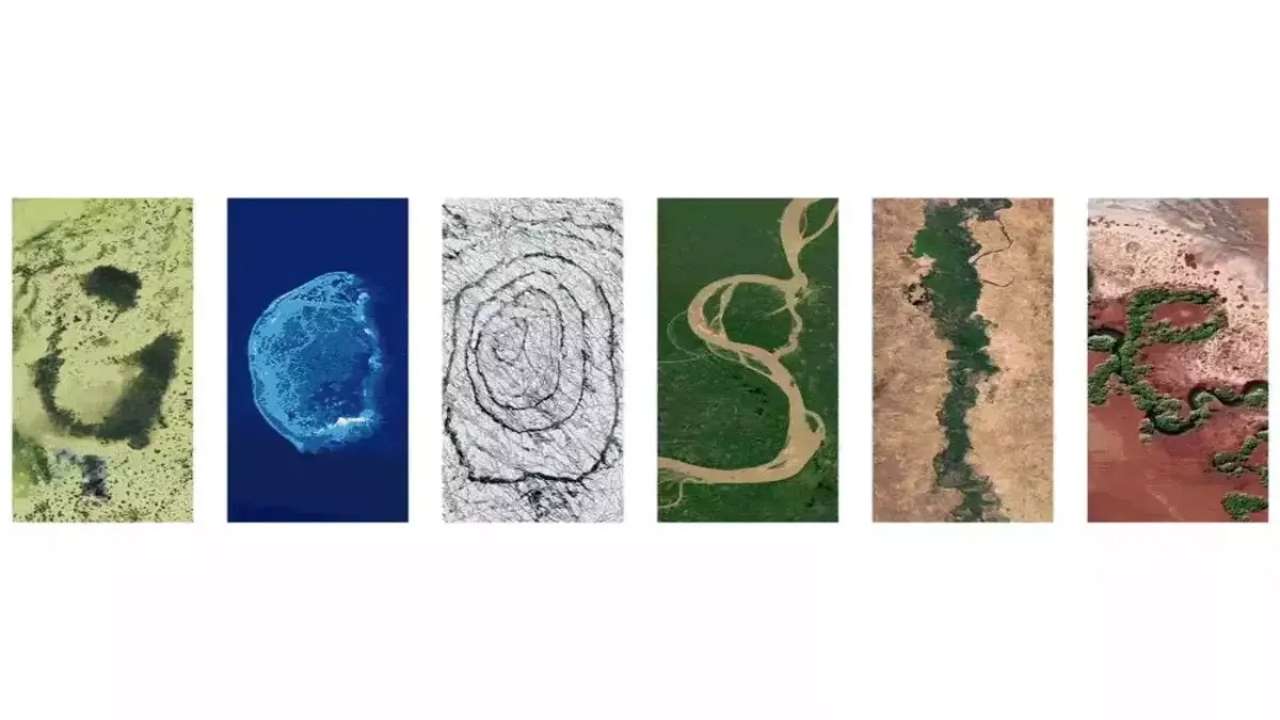
Google shared a doodle today to celebrate World Earth Day 2024, which showcased aerial photos of the planet’s biodiversity and natural beauty. Google reminded us of the importance of protecting planet earth for future generations with the help of this doodle.
The Google letters depict specific locations across the globe where people, communities, and governments work every day to help protect the planet’s natural beauty, biodiversity, and resources, according to the explanation of the annual Earth Day 2024 doodle on their website.
It said, these examples remind us that there’s much more to do to address the climate crisis and biodiversity loss, but also offer the promise of hope and optimism.
The islands of Turks and Caicos are represented by the letter “G.” The islands’ conservation efforts are concentrated on protecting important regions for biodiversity and addressing persistent environmental problems.
The largest reef in the southern Gulf of Mexico and a UNESCO biosphere reserve, Scorpion Reef National Park, is represented by the letter “O” in the Mexican flag.
The letter “O” features Iceland’s Vatnajokull National Park, which was designated as a national park in 2008 following decades of advocacy. The ecology within and surrounding the biggest glacier in Europe is safeguarded by this UNESCO World Heritage Site.
The letter “G” has the Jau National Park in Brazil on it. It is a UNESCO World Heritage Site and one of the biggest forest reserves in South America.
The Great Green Wall of Nigeria is represented by the letter “L,” and the Pilbara Islands Nature Reserves of Australia are represented by the letter “E.”
Meanwhile, Earth Day is a worldwide event that promotes protection of the environment every year. April 22 serves as a reminder of the importance of conservation efforts and sustainable practices to guarantee a healthier world and a brighter future.
The occasion inspires people across the world to come together and take action to protect the environment, strengthening our bonds with nature and promoting good change.
Latest world news
Bigg Boss 14 contestant Rahul Vaidya struggles walking in knee deep water, compares Dubai rains with Mumbai floods
Singer and TV personality Rahul Vaidya was recently stranded in the Dubai rains.

Rahul Vaidya, who was in Dubai ahead of his show which was scheduled to take place today, left the country due to heavy rains and reached Kolkata. The artist shared on social media his encounters in the UAE city, including challenges like walking through knee-deep water. Rahul provided an update regarding the heavy rainfall in Dubai on his Instagram profile.
The Bigg Boss 14 contestant revealed that he was in Kolkata and prepared to do an evening performance. Recalling the terrifying period he went through, Vaidya said there was a lot of confusion and panic in Dubai. The situation was similar to that when heavy floods hit Mumbai in 2005.
Vaiday also posted seval other images and videos of cars that were underwater and flooded roadways. The Bigg Boss 14 contestant, who shared his ordeal, claimed that even though it had just rained for two hours, the situation was dire.
In one of the video, which went viral he can be seen struggling in walking in knee-deep water. He can be also seen holding his sneakers in one hand and with other hand he was seen managing other things.
This is the result of the two hours of rain that it had, he can be heard saying in the video. Vidya also said he dosen’t believe Dubai is accustomed to a lot of rain. Everything had stopped working, he remarked.
After taking part in the first season of the singing reality show Indian Idol, Rahul Vaidya gained widespread recognition. In addition to Bigg Boss, he took part in Khatron Ke Khiladi 11.
Meanwhile, heavy rains that triggered flooding in the UAE and Bahrain, which left 18 people dead in Oman on Sunday and Monday, have paralyzed the financial hub of the Middle East, Dubai.
A lot of incoming flights were diverted from Dubai’s international airport because of the rain. At 7:26 p.m., the busiest airport in the world for foreign visitors stopped accepting new arrivals; a gradual resumption was announced for more than two hours later.
Images of planes navigating flooded tarmacs are making the rounds on social media.
According to pictures shared on social media, the flagship malls Dubai Mall and Mall of the Emirates both experienced heavy floods, while at least one Dubai Metro station had water up to the ankles.
There were several road collapses, severe flooding in residential areas, and numerous reports of leaks from windows, doors, and roofs.
Due to the unfavourable weather, schools around the United Arab Emirates were forced to close, and as more storms are predicted, the closures are anticipated to last until Wednesday. The government of Dubai allowed its staff to work remotely till this Wednesday.
Latest world news
Dubai sky turns green during storm in UAE, video goes viral
The UAE witnessed record-breaking rainfall on Tuesday and the National Centre of Meteorology recorded 254 mm of rainfall in less than 24 hrs in the Khatm Al Shakla area in Al Ain.

1 person was killed in UAE as it witnessed heavy rainfall on Tuesday, stranding commuters, flooding roads, disrupting trains and flights and resulting in water leakage from mall ceilings. The UAE witnessed record-breaking rainfall on Tuesday and the National Centre of Meteorology recorded 254 mm of rainfall in less than 24 hrs in the Khatm Al Shakla area in Al Ain. It is being said that the rainfall was the highest documented since the start of data collection in 1949.
The heavy rainfall in UAE came days after a similar situation in neighbouring Oman, where 13 people were killed in flash floods. Many parts of Oman saw torrential rains, which caused students to be trapped in buses and swept away motorists and trapped people in their homes.
Videos from Dubai circulating on social media showed widespread waterlogging on roads in Abu Dhabi, Dubai and other important cities. This left daily commuters in cars and other vehicles struggling to get back home. Dubai metro station too was seen flooded and closed.
One such video circulating on social media shows the aerial view of the city of Dubai from the top of a building. In the video the stormy winds are seen blowing over the city of Dubai. As the storm intensifies the Dubai sky turns green and ultimately gets covered by heavy rainfall. The video has gone viral on social media with more than 1.1 million views.
Another video showed water leakage from the ceilings of shopping malls, flooding the floors and destroying goods. A video which was shot in the famous Mall of the Emirates, showed pieces of ceiling falling as the rainwater gushed inside. Videos from many outlets of the Deira City Centre mall chain showed escalators being rendered unusable. Majid Al Futtaim, the company which owns the Mall of Emirates, said that the shopping complexes have been kept open and the customers are being sent away from the flooded areas.
-
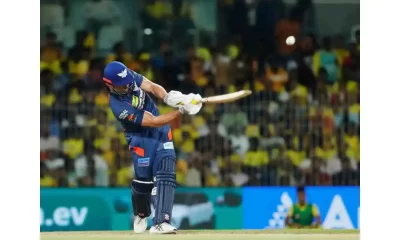
 Cricket news22 hours ago
Cricket news22 hours agoIPL 2024: Marcus Stoinis hits first IPL century as Lucknow Super Giants beat Chennai Super Kings by 6 wickets
-
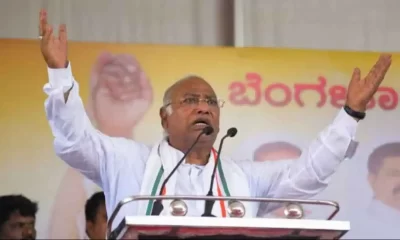
 2024 Lok Sabha Elections13 hours ago
2024 Lok Sabha Elections13 hours agoMallikarjun Kharge vows to continue politics till his last breath to defeat BJP
-
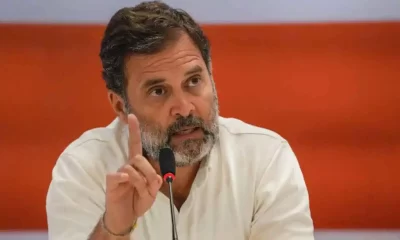
 2024 Lok Sabha Elections20 hours ago
2024 Lok Sabha Elections20 hours agoRahul Gandhi clarifies on wealth survey remark, says aim is to identify injustice
-
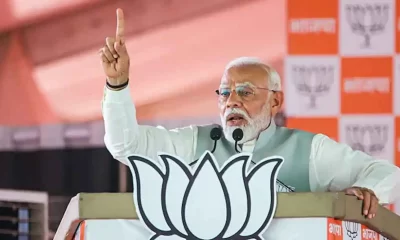
 2024 Lok Sabha Elections17 hours ago
2024 Lok Sabha Elections17 hours agoPM Narendra Modi slams Congress over Sam Pitroda’s inheritance tax remarks, accuses Congress of intending to impose higher taxes
-
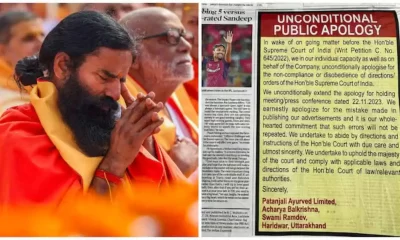
 India News19 hours ago
India News19 hours agoRamdev, Balkrishna publish bigger apology in newspapers after Supreme Court’s rap
-
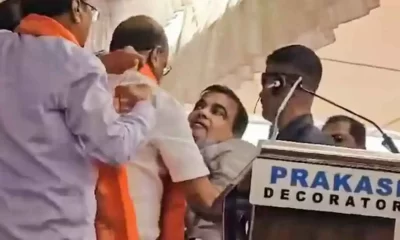
 2024 Lok Sabha Elections14 hours ago
2024 Lok Sabha Elections14 hours agoNitin Gadkari says he’s better now after collapsing at election rally in Maharashtra’s Yavatmal
-
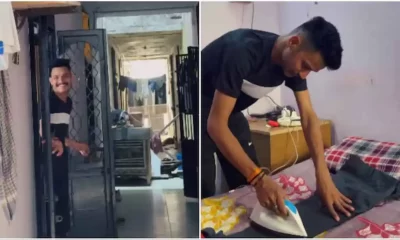
 Trending18 hours ago
Trending18 hours agoA waiter’s life: Social media users go emotional on watching viral video
-
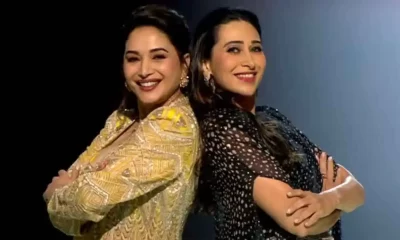
 Entertainment15 hours ago
Entertainment15 hours agoMadhuri Dixit, Karisma Kapoor recreate Dil To Pagal Hai dance battle on Dance Deewane

